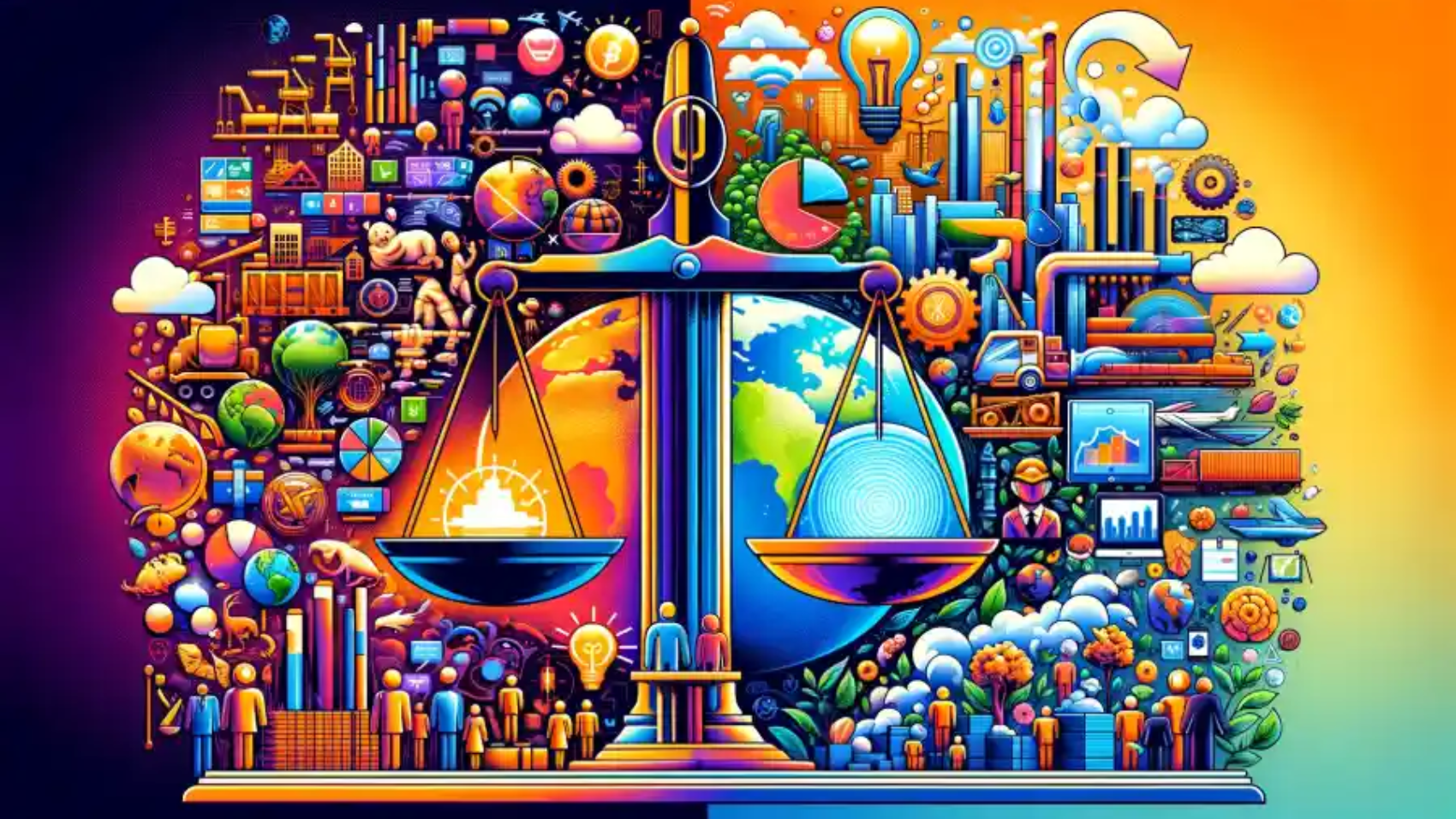The world is more interconnected than ever before. With a population exceeding 7.8 billion, globalization is a powerful phenomenon impacting economies, cultures, and environments. A staggering 40% of global jobs are linked to international trade, highlighting the importance of understanding both the pros and cons of globalization.
Globalization fosters international collaboration and cultural exchange. It also presents challenges like economic disparity and cultural homogenization. As citizens of an interconnected world, navigating the complexities of globalization is crucial.
Exploring the Pros and Cons of Globalization
Globalization’s multifaceted nature significantly alters our world. Let’s delve into its positive and negative aspects.
The Economic Landscape: Boom or Bust?
- Economic Engine: Globalization has been a key driver of economic growth. It facilitates the movement of goods, services, and capital across borders, promoting efficiency and innovation. Multinational corporations (MNCs) expand their reach, bringing investment and jobs to new markets. For instance, major brands entering developing economies create jobs and share knowledge and technology.
- Widening Gap: However, globalization has also contributed to an economic divide between rich and poor nations. While some regions flourish, others struggle to keep pace. The shift of manufacturing jobs to countries with lower labor costs has resulted in job losses in developed economies. Additionally, the gap between skilled and unskilled workers widens, with the latter facing job insecurity and stagnant wages.
Cultural Tapestry: Intertwined or Overwhelmed?
- Global Village: A celebrated aspect of globalization is cultural exchange. From cuisine to music and fashion, globalization fosters a richer cultural experience. This exchange fosters mutual understanding and tolerance, dismantling stereotypes and promoting global unity.
- Identity Erosion: The spread of global culture can also threaten local identities. The dominance of Western media and products raises concerns about cultural homogenization. Local customs and traditions risk being overshadowed by a global monoculture.
Environmental Impact: Friend or Foe?
- United We Stand: Globalization facilitates international cooperation on environmental issues. Agreements like the Paris Accord exemplify how nations can address global challenges like climate change. Additionally, green technologies spread faster, making sustainable practices more accessible worldwide.
- Ecological Threat: The environmental downsides of globalization are significant. Increased production and transportation lead to higher carbon emissions and pollution. Furthermore, exploitation of natural resources to fuel economic growth threatens biodiversity and planetary health.
Political and Social Considerations: A Delicate Balance
- Diplomacy and Peace: Globalization has the potential to strengthen diplomatic ties and promote peace through interdependence. Economic and cultural exchanges can foster a more interconnected and peaceful world, where nations prioritize dialogue over conflict.
- Unequal Benefits: However, globalization can exacerbate social inequalities. The benefits are not distributed evenly, leading to disparities in wealth and access to resources. In some cases, it weakens labor rights and working conditions as companies seek to minimize costs.
Conclusion: A Force for Good, for All
The pros and cons of globalization paint a picture of a world brimming with opportunities and challenges. While it offers incredible growth and cultural exchange, it also presents significant challenges that demand solutions. Balancing these aspects requires meticulous policies and international cooperation to ensure globalization becomes a force for good, benefiting all of humanity. As we navigate this global landscape, open discussions are essential to achieve equitable and sustainable outcomes for future generations.
Frequently Asked Questions
What are the main advantages of globalization?
A: Globalization fosters economic growth, cultural exchange, and international cooperation, leading to increased trade, investment opportunities, and a richer cultural tapestry.
How does globalization negatively affect local economies?
A: While globalization opens international markets, it can also harm local industries that cannot compete with global giants, leading to job losses and economic disparities.
Can globalization contribute to environmental sustainability?
A: Globalization has the potential to spread sustainable technologies and foster global environmental efforts. However, it also poses challenges like increased resource depletion and a larger carbon footprint, necessitating a balanced approach to environmental management.

